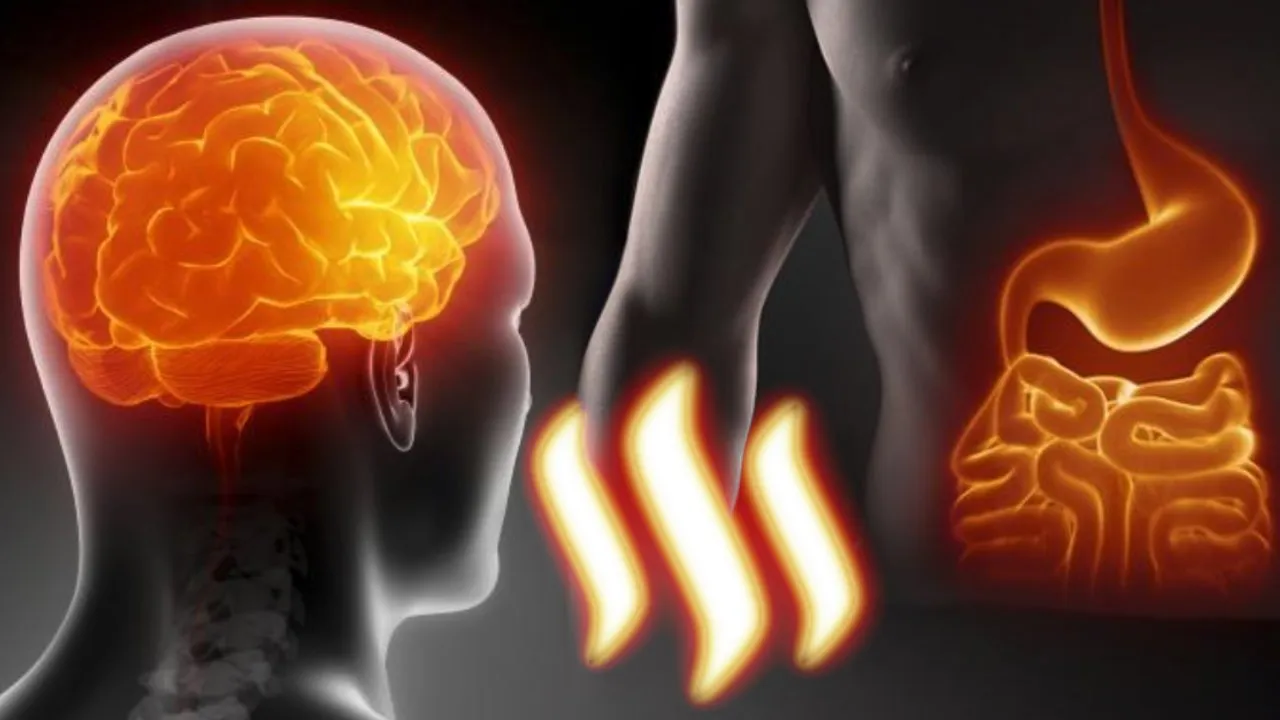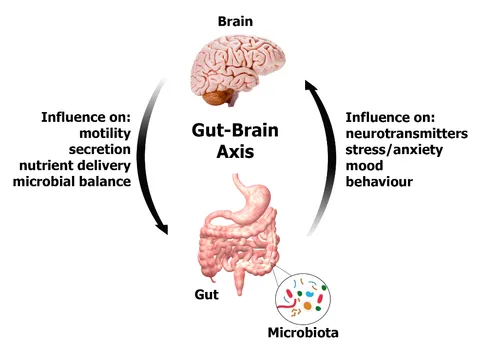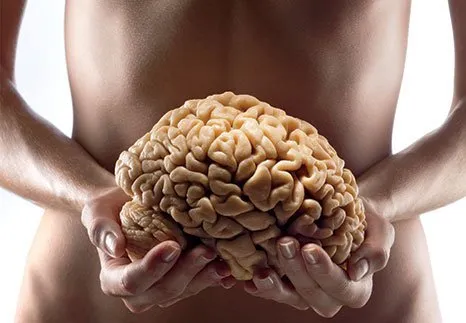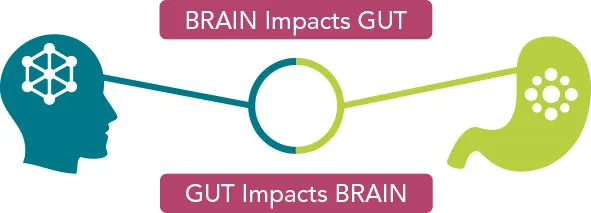
The brain is our most important organ, the center of our thoughts and emotions.
But when we feel extreme excitement, get some bad news or get in a stressful situation, we feel another part of our body being affected as well - our stomach.
"Gut Feeling" or "Butterflies in the Stomach" - these are much more than just sayings.
Our emotions are often reflected by a physical feeling we have in our stomach area.

Our bowel contains 100-200 Million nerve cells - in comparison: There are about 160 Million nerve cells in the cortex of a dog's brain, and dogs are already considered very smart animals.
So no wonder scientists are referring to our gut as our "second brain beneath the shoulders".
All these nerve cells control our very complex digestive system - they regulate our bowel movements and nutrient intake and more.
Via the gut-brain-axis, our "second brain" communicates with our actual brain: it signals whether we're hungry or stuffed, or if we ate something bad.

The nervous system in our gut uses the same neurotransmitters that we also have in our brain.
Neurotransmitters transfer information from one nerve cell (Neuron) to another one.
Serotonin is one of those Neurotransmitters - it controls our "happy" emotions and many medications against depression try to increase the amount of Serotonin in the patient's brain.
But because Serotonin is also used to transfer Information in our gut, those medications often trigger gastrointestinal problems or other side effects.

So now the question is: Does the gut only reflect what our brain controls, or can our "Second Brain" actually influence our behaviour by itself as well?
Scientists in Canada have asked themselves the same thing, and decided to study it on an experiment with mice.
The mice were put into a container that was filled with water - so deep that the mice couldn't stand, and they also couldn't climb up the walls.
The scientists now observed how long the mice kept swimming until they gave up (which is when they were taken out of the container immediately!!).
After that, the mice were divided into 2 groups:
One group received normal food, while the other was given food that had been specifically enriched with a bacterium that is said to enhance the production of the neurotransmitter "GABA".
GABA is often used in anxiety treatments and helps the body relax and ease off.
After a few weeks, the researchers repeated the experiment -
and it showed that the mice who had been received the special nutrition had more power of endurance than the others!
After the mice had been taken out of the container, the group with the special food also showed less symptoms of depression, compared to the ones who ate normal food.
The scientists concluded that the enriched food must have enhanced the GABA production, which made the mice more become desperate much later.
So this means that processes in our gut which can be influenced through our diet, DO influence our behaviour.

Scientists are hoping to make use of our "second brain" in the future, by having it influence our real brain!
Because currently, it's quite hard to influence the processes in our brain with medication due to the blood-brain barrier.
This barrier denies anything that's foreign to the body access to the brain - and so it denies access for medication as well.
Since bacteria in the guts can be controlled more easily, scientists are optimistic that they'll be able to use this knowledge to treat disturbances in our brain more effectively in the future.
- Instagram -

© Sirwinchester